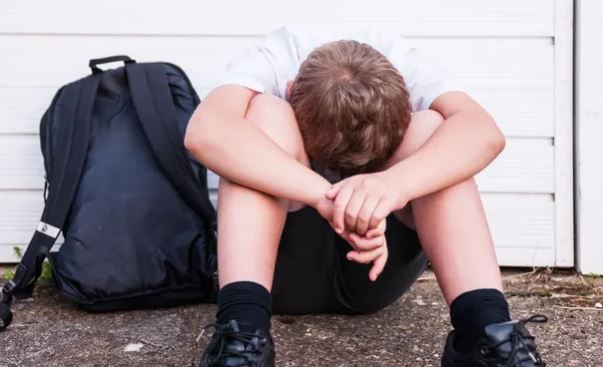Beating the back-to-school blues

Helping our students to start the new year off on the right foot involves more than shiny shoes and crisp new books. Let’s look at what they need to boost their confidence as they walk into the playground and classroom.
1) Resilience
A tough day may leave a child or teen feeling overwhelmed. However, try not to rush in with a ‘fix it’ mentality. I remember when one of my children felt that his maths teacher was too strict and ‘on their case’, yet this teacher became one of his favourite teachers by the end of that term. Allow your child some time to adjust to new teaching and learning strategies, and encourage them to work on their own problem solving skills. Congratulate them on any progress and look at the bigger picture regarding their achievements, rather than focussing on any small slipups.

2. New friends
I’ve always been a strong advocate for arranging catchups to encourage new friendships ~ this applies to all age groups. Getting kids together for a swim, a movie or meeting at a park are great ways for enriching new relationships with classmates. It’s normal for a child to feel nervous about making new friends. Look at any school activities/clubs where they are likely to cross over with kids of similar interests, such as swimming, drama, a certain sport. Has your child moved schools or started high school? We recommend that you let them keep in contact with their old friends because it’s important to have a wider network to turn to in case one social group changes/falls apart.
3. Routine
Utilise the start of the year energy to generate some solid study habits. A timetable outlining their commitments and time spent on homework should remain fairly consistent through the term. From experience, I’ve seen how my own children seem to be spending lots of time studying, but if you delve a bit deeper you can see how they tend to focus on the subject/s they like and neglect those where they feel less confident (& their marks usually reflect this!). A clear timetable using different coloured pens for each subject allowed my kids to ensure they distributed their time across all subjects.
Clear timetables in our household greatly reduced my nagging after the comment, “But I’ve done all my homework.” Even if homework hasn’t been assigned, encourage students to block out that time and review their notes or read a book.
4. Effective Time Management
This follows closely to the above but it deserves it’s own paragraph. Help your children to see that school is an overall marathon, not a sprint. “My child is struggling with their upcoming assignments – is it their reading comprehension skills?” We receive these emails all the time from parents!
Often it isn’t a processing problem. Instead, check that they aren’t spending too much time on a large assignment at the expense of an upcoming test. Doing the assignment for them (as tempting as this is!) won’t help students in the long term. They need to learn the strategies to manage their time and create a ‘to do’ list. Receiving a lower grade from lacking organisational skills or a poorly written assignment is a good life lesson.
5. Positivity & Communication
Always notice what your children are doing well. “I can see that you worked really hard on that.” “Can you show me your best work for the day?”
I just love this quote: “Our voices as parents become our children’s inner voices.” (Pine Rest Mental Health Services)
Our parting advice is to remember to maintain an upbeat attitude when talking about and preparing for the return back to school. This is both a busy time and an exciting time, so be open about showing your enthusiasm and passing along that positive energy.
We are incredibly passionate about improving kids’ literacy – research consistently supports the fact that confident readers achieve more highly than disengaged learners. If you are wanting a resource that can boost your child’s literacy leading into 2023, please visit Literacy for Boys or Literacy for Kids
Check out our recent appearance on Channel 7 News ~
Parents ~ sign up for a free 30-day trial and improve your son’s literacy for the upcoming school year!
As an educator, do you want more from your literacy program? Contact us for a 30-day free trial in your school or classroom. Sign up for our newsletter and get FREE Comprehension Worksheets for Years 3 to 9.
Our latest results are in – 100% improvement in literacy in a Year 6 cohort! Special mention of the disengaged boys who showed total commitment to the program and improved accordingly.
Check out our blogs for more ideas and tips.
Steps to Successfully Support Disengaged Learners
See us featured in The Educator Australia magazine
Research confirms that early reading boosts literacy
Boys Love LFB – Here’s what they have to say!
Get boys reading in the digital age
Why write? Tips for reluctant writers
Brought to you by Tanya Grambower

